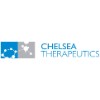
Long Term Safety and Tolerability Study of ABT-089 in Adults With Attention-Deficit/Hyperactivity...
Attention-Deficit/Hyperactivity DisorderThe objective of this study is to evaluate the long-term effects and tolerability of ABT-089 in adults with Attention-Deficit/Hyperactivity Disorder (ADHD).

Supplements and Social Skills Intervention Study
Conduct DisorderAttention Deficit Hyperactivity Disorder1 moreThis is a 36-week, randomised, double-blind, placebo-controlled trial. The overarching aim of this study is to assess whether a nutritional intervention (Omega-3 supplement), when combined with a more traditional treatment approach to conduct disorder and Attention Deficit Hyperactivity Disorder (ADHD), is more effective than either approach alone in treating these conditions in children and adolescents. The research questions cannot be answered through alternative means because disruptive behaviour disorders are primarily childhood disorders.

Effect of Vyvanse on Sleep in Children Aged 6-12 Years With Attention Deficit Hyperactivity Disorder...
Attention Deficit Hyperactivity DisorderSleepThis study involves research to test how Vyvanse (study drug) affects sleep in 24 children aged 6 to 12 years who have ADHD. Vyvanse is approved by the FDA for the treatment ADHD of in children aged 6 to 12 years. The experimental part of this study is to determine how Vyvanse affects sleep.

Pharmacogenetic Study of Methylphenidate in Attention Deficit/Hyperactivity Disorder(ADHD)
Attention Deficit Disorder With HyperactivityMethylphenidate1 moreThe noradrenergic system plays a known role in attentional systems and suspected causal role in attention deficit/hyperactivity disorder(ADHD).Methylphenidate also has been suspected as a inhibitor of norepinephrine transporter(SLC6A2). The investigators hypothesis is that norepinephrine transporter polymorphism is associated with responses and adverse effects of OROS-methylphenidate in treatment of ADHD.

The Impact of Osmotic Release Oral Delivery System Methylphenidate (OROS MPH) Upon Family of Children...
Attention Deficit Disorder With HyperactivityThe purpose of this study is to evaluate whether familial relationships and psychological status of participants or caregivers as well as Attention Deficit Hyperactivity Disorder (ADHD) symptoms of participants can be improved by switching from Immediate-release Methylphenidate (IR-MPH) to Osmotic Release Oral Delivery System Methylphenidate (OROS-MPH).

Long Acting Stimulant Treatment of Attention Deficit Hyperactivity Disorder (ADHD) in Young Children...
Attention Deficit Hyperactivity DisorderThis is a pilot study evaluating the effectiveness, safety, and tolerability of Ritalin LA in treating Attention Deficit Hyperactivity Disorder (ADHD) in 4 and 5 year old children. Virtually no data has been published on the use of long-acting stimulant preparations in very young children despite early symptomatic development in a significant portion of young children with ADHD. This would be one of the first studies looking at a long-acting preparation of a stimulant medication in the treatment of ADHD in very young children. Hypotheses Ritalin LA is effective for the treatment of ADHD in 4 and 5 year old children. Ritalin LA is reasonably well-tolerated in the treatment of ADHD in 4 and 5 year old children.

The Safety and Efficacy of a Compound Natural Health Product in Children With Attention Deficit...
Attention Deficit Hyperactivity DisorderThe purpose of this study is to investigate the use of a natural health product, as compared to placebo (an inactive substance), in managing the symptoms of ADHD. The natural health product contains the nutrients zinc, magnesium, vitamin B6 and vitamin C. Each of these nutrients has some evidence to suggest that children with ADHD might be lacking them. As such, children with ADHD might benefit from supplementing their diets with these nutrients, especially ADHD children who have below average levels. This study will measure whether the severity of ADHD symptoms is greater in children with low levels of zinc, magnesium, and vitamin B6, and whether the severity of ADHD symptoms will decrease with supplementation of these nutrients. This study will also monitor for any adverse reactions or side effects from taking these nutrients in children. Although these natural health products are commercially available, the use of them as a supplement or placebo in this study has been approved for use in this study by the Natural Health Products Directorate of Health Canada.

An Efficacy Study of Osmotic Release Oral System (OROS) Methylphenidate in Participants With Attention-Deficit/Hyperactivity...
Attention Deficit Disorder With HyperactivityThe purpose of this study is to evaluate the efficacy, tolerability and effects of Osmotic Release Oral System (OROS) methylphenidate hydrochloride (HCl) on learning skill changes in Korean participants with Attention-Deficit Hyperactivity Disorder (ADHD).

A Study of Pediatric Patients With Attention Deficit/Hyperactivity Disorder
Attention Deficit Hyperactivity DisorderThe primary purpose of your child's participation in this study is to determine whether LY2216684 can help pediatric patients with attention-deficit/hyperactivity disorder (ADHD); and assess the safety of LY2216684 and any side effects that might be associated with it.

Study of Droxidopa Treatment in Adults With Attention Deficit Hyperactivity Disorder With Co-administration...
Attention Deficit Hyperactivity DisorderAttention Deficit Hyperactivity Disorder (ADHD) is a neurobiological disorder characterized by lifelong issues of inattention, distraction, organizational difficulties, forgetfulness, restlessness, talking out of turn, difficulty waiting and interrupting others. ADHD is the second most common neuropsychiatric disorder affecting 4.4% of the US adult population, or between 8-9 million individuals (Kessler et al., 2006). Droxidopa (L-dihydroxyphenylserine (L-DOPS)) is a synthetic catecholamine which is converted to norepinephrine (NE) via decarboxylation, resulting in increased levels of NE centrally in the CNS and peripherally. Co-treatment with carboxylase inhibitors, such as carbidopa, given with droxidopa, can increase the CNS levels of NE with greater crossing of the blood-brain barrier. Droxidopa has received orphan drug approval by the FDA for the treatment of symptomatic neurogenic orthostatic hypotension in individuals with primary autonomic failure. The half-life of droxidopa is approximately 2-3 hours, resulting in administration thee times daily. As adult ADHD is characterized as a disorder of decreased NE activity in the pre-frontal cortex, it is hypothesized that treating patients with droxidopa (in co-administration of carbidopa) will have a positive effect on adult ADHD.
